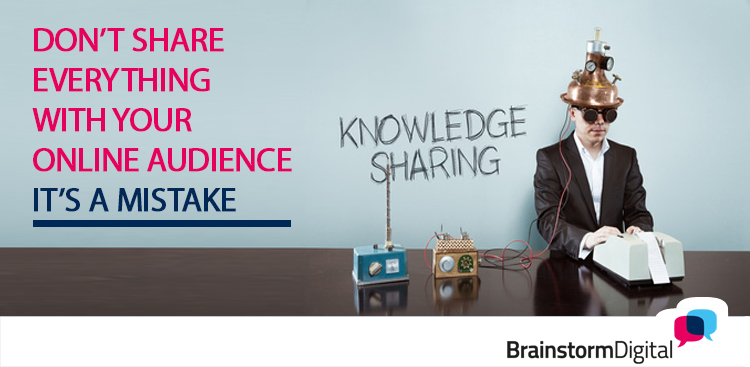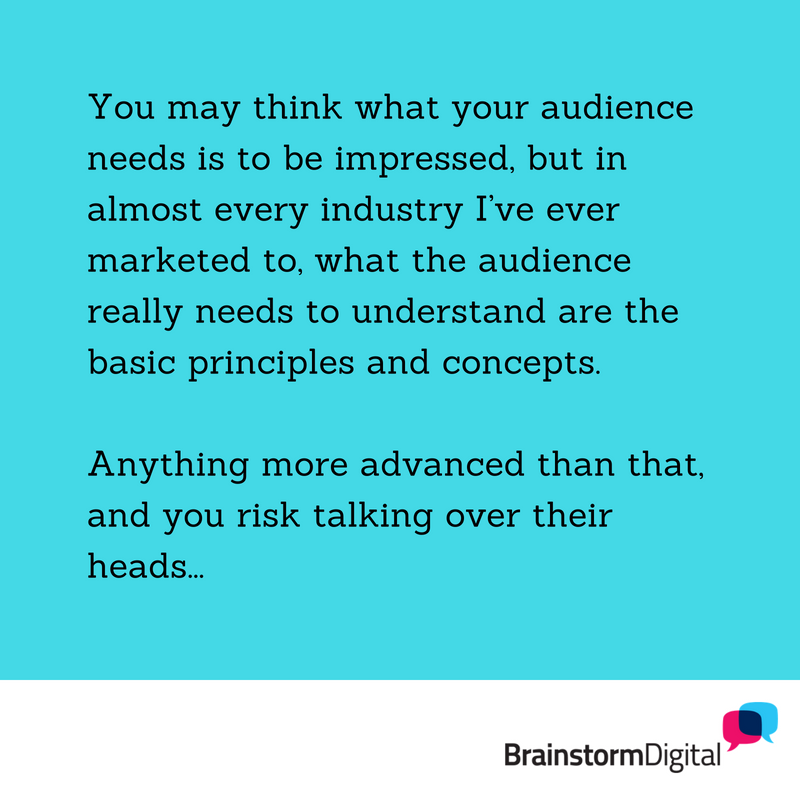
Recently, we took my six-year-old son to the theme park.
He wasn’t allowed on most of the rides because he was too short, so he had to make do with the mini-roller coaster, teacup-and-saucer ride and dodgem cars.
All around me, I could see giant roller coasters travelling at 80 mph and looping the loop, wing rollercoasters and a terrifying drop tower which must have been at least 20 storeys high.
I was sure he would be disappointed because the exciting rides were out-of-bounds. (Personally, I was relieved 🙂 )
But I was wrong…
He couldn’t have been more thrilled with the rides he went on.
They were pitched at the right level for him. The rides which seemed “normal” to me would have been terrifying for him.
This experience in the theme park helps illustrate one of the most hotly debated questions in online marketing:
“Should I share my best ideas, tips and insights with my online audience?”
There are two schools of thought.
One holds that you should reveal all. Doing so builds you up as an expert.
In any case there’s no such thing as truly “secret” information in the digital age.
There is probably very little you can say that one of your leads can’t find from another source in a 2-second Google search – So what’s the point holding back?
The other holds that you should not share your most valuable information.
If you give away all your deepest knowledge, why should people buy from you? They’ve received your best advice for free anyway.
Nowadays, I’m firmly in the second camp. This is an area where I’ve changed my mind over the last few years – for two reasons.
Your audience needs basic principles and concepts
The first reason is because in most cases, your “best” tips and advice are probably far more sophisticated than your online audience needs – or wants.
If you really are an expert in your field, you have vast knowledge and deep insights.
You think that’s what your audience needs to be impressed, but in almost every industry I’ve ever marketed to, what the audience really needs to understand are basic principles and concepts.
Anything more advanced than that, and you risk talking over their heads and bombarding them with technical information.
Be Captain Obvious
The worry, of course, is that you’re boring your online audience by being Captain Obvious.

But just like my son at the theme park, who was wowed by the smaller rides, the information you regard as basic and boring is probably quite exciting to the people you’re selling to.
They are lost, they need help – and probably don’t even know where to start. If they did, they wouldn’t need you…..
That’s where you need to focus.
It can be hard to see that when you know so much more. (And you can see the really exciting roller coasters right in front of you…..)
But it’s valuable to them, and that’s what counts.
Do you want fans – or buyers?
But there’s also another reason why you should hold some information back.
In reality, this dilemma boils down to another question:
What would you prefer: A legion of fans, who think that every word you utter is prophecy and who follow you slavishly – but never buy a thing from you?
Or a list of buyers?
If your top priority is the latter (I hope it is — you are a business owner, so it should be!), then sharing everything you know is simply not necessary, and often counter-productive.
If you want people to buy, then you need to help them accept that they have a problem you can help with.
You need to make them feel that pain, show them why your solution is best, to help them overcome their hesitations and tendency to procrastinate, and paint a picture of the better future they’ll enjoy, once they’ve bought.
Focus on conversion copy
To create buyers, you need to focus on creating copy that converts… That hits their emotional hot buttons, creates a desire for your product and eliminates all barriers to purchase.
This is very different to sharing lots of information or knowledge.
Explaining your best ideas and telling people how to implement them will give you authority and help establish your thought-leadership. People will respect you for it and acknowledge you know what you’re talking about.
But unless you do it in a very specific way, it doesn’t create an urgency for them to buy.
It’s not designed to convert. And while you will probably attract the occasional enquiry, you won’t attract the steady stream of new business you need to make your online marketing thrive.
That’s when you end up staring at your end-of-year accounts, with a bottom line that has barely progressed, screaming silently to yourself:
“Why can’t people see the value of what we do? The quality of the content we put out on social media and over email is so much better than anything any of our competitors send out. Why don’t people see that, and contact us???”
You still need to share great ideas
Now, that doesn’t mean you should never share good ideas or your valuable, original take on things. On the contrary.
You want to excite and inspire people.
But the ideas and info you share should help with that process of conversion.
Give your readers original, valuable insight into why they are still stuck with their problem…. Where they’re going wrong…. Why your system is revolutionary….
Stay focused on what matters to create buyers, instead of trying to dazzle people with your knowledge.
Take your readers on the teacup ride, not the roller coaster….
They’ll love it!
Miriam Shaviv is author of Discover how to write high-converting emails in 10 minutes or less – Guaranteed!
She is director of content at Brainstorm Digital, which helps companies generate leads, enquiries and sales online.









